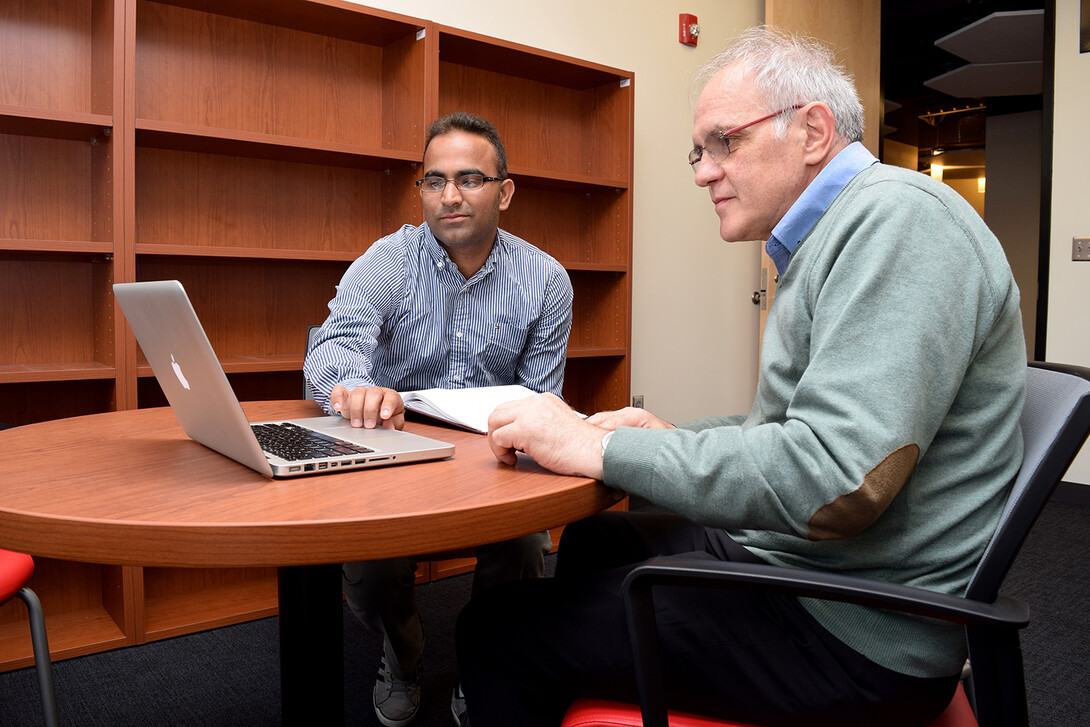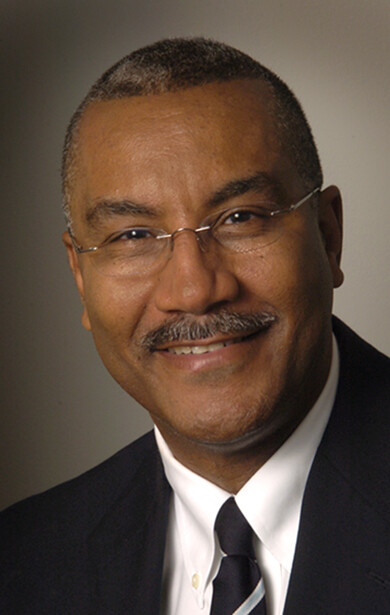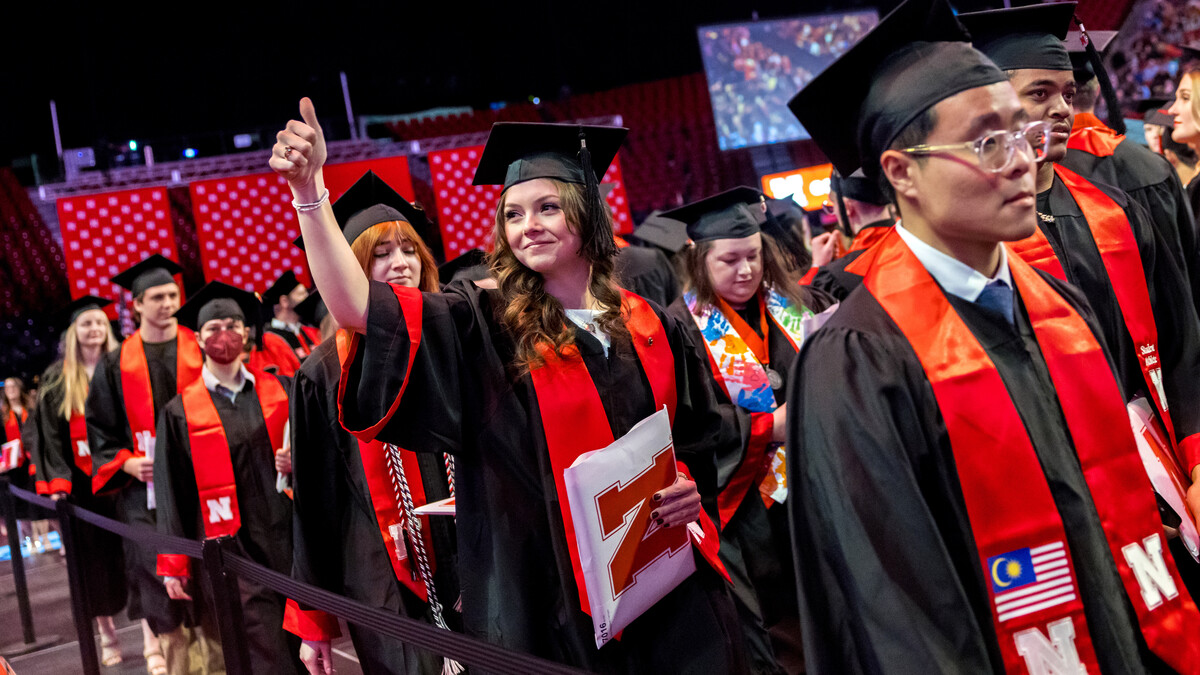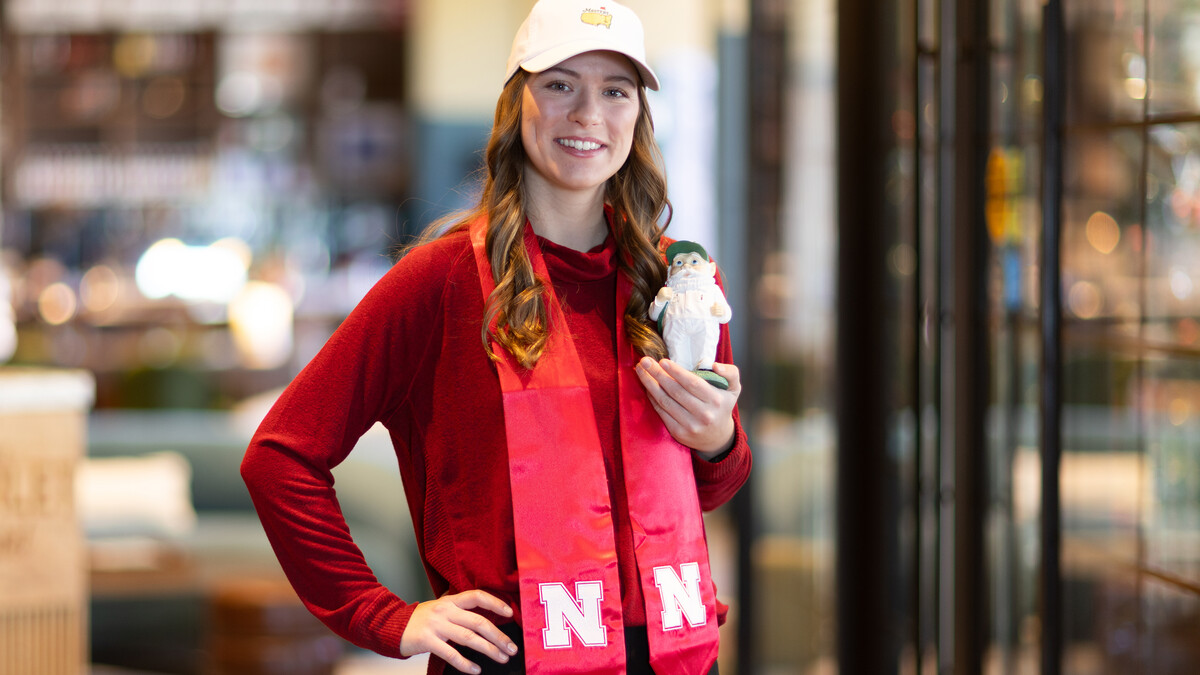
After seven years of long-distance collaboration that began in Barcelona, a Spanish scholar will spend his summer researching in Hamilton Hall with the University of Nebraska-Lincoln Department of Chemistry.
Visiting Fulbright scholar Josep Anglada Rull will join Joseph Francisco, dean of the College of Arts and Sciences, in continuing his study of atmospheric reactions that include the oxidation of ascorbic acid, a form of Vitamin C, by ozone.
“Vitamin C is one of the most important antioxidants,” said Anglada, senior researcher at the Spanish National Research Council. “The mechanism of ozonolysis is not fully understood, and this is essential for obtaining a deeper knowledge of the effects of ozone as a pollutant in living organisms.
“Among the antioxidants protecting living organisms from ozone, ascorbic acid plays an important role. With this project, we will investigate the reaction between both (chemical) species.”
Each year, about 800 international faculty and professionals receive Fulbright grants to conduct research and lecture in the United States. Being able to work directly with Anglada on the UNL campus, without the time- and focus-sapping barriers of travel and long-distance communication, should also allow for more productive brainstorming that could yield future collaborative projects, Francisco said.
The two researchers first met face-to-face in 2009, when Anglada – who had developed an interest in Francisco’s research from afar – invited him to a theoretical chemistry conference in Barcelona. Since then, Anglada and Francisco’s research teams have worked closely to advance understanding of atomic and molecular reactions in the atmosphere.
That collaboration has resulted in 14 peer-reviewed studies to date, appearing in such journals as the Proceedings of the National Academy of Sciences and the Journal of the American Chemical Society.
“Cross-cultural collaboration, when it works, is synergistic and brings understanding between partners that neither is likely to develop alone,” Francisco said. “There are people in the world who know something, but nobody knows everything.
“It is exciting to have a Fulbright research scholar in the College of Arts and Sciences,” he said. “What was encouraging was that Anglada was attracted to our college and university as the place for him to do his research as a Fulbright, given that there were so many universities around the world for him to select.”








